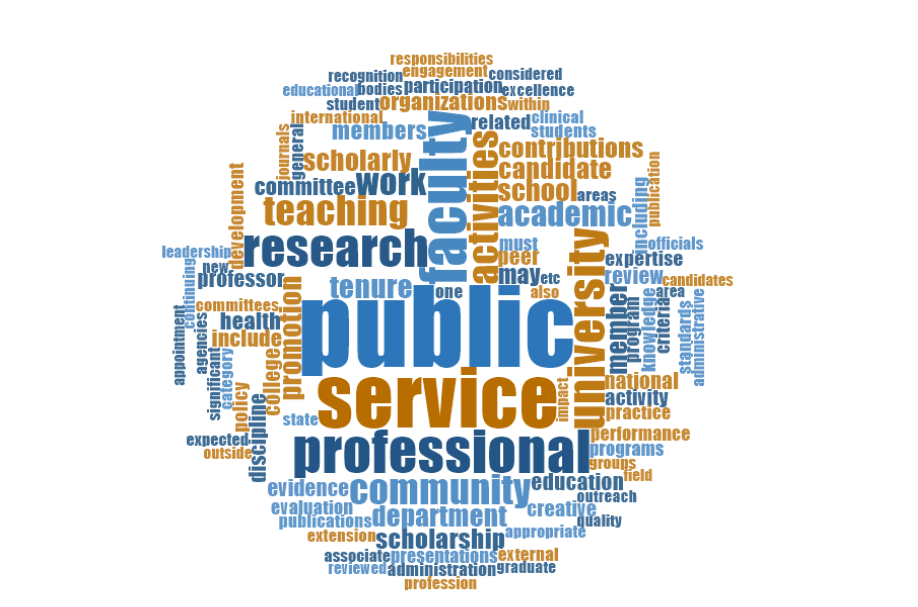Now Available: Results from the Review, Promotion, and Tenure Study

The review, promotion, and tenure (RPT) process is one of the cornerstones of academic life, influencing how and where faculty focus their attention, direct their research, and publish their work. In a recent study, the ScholCommLab analyzed this process from a new perspective—textual analysis of a representative sample of RPT guideline and policy documents—to understand the incentive structures that reinforce traditional publishing practices and the use of citation-based metrics at the expense of publicly oriented scholarship.
Our full results are available at Humanities Commons, and have also been profiled in Nature, Inside Higher Ed, and The Chronicle of Higher Education. But we’re sharing some of the key findings right here on the ScholCommLab blog.
Key Takeaways from the RPT Study
- 75% of research intensive institutions mention citation metrics
- 90-95% of all institutions, across institution types and disciplines, mention traditional research outputs (e.g., articles, book chapters, conference presentations, etc.)
- 75% of all institutions mention the term “public”, but only 64% mention the concept of “public and/or community engagement”
- Life sciences are more concerned with “Impact” and “Community Engagement” than the other disciplines; Physical sciences and Math are more concerned with citation metrics (Social Science and Humanities, which are the least)
- The words surrounding mentions of “public” emphasize that working for the public is a service activity; words surrounding “community” emphasize that it is the academic community that is of primary concern
Overall, we conclude that while universities speak about their desire for public engagement in broad terms, they give faculty few specifics on how pursuing public scholarship, including publishing in open access journals will be recognized in their career progression. It seems that, “in order to be successful, faculty are mostly incentivized towards research activities that can be counted and assessed within established academic conventions.”
For more information about the study, visit scholcommlab.ca/research/rpt-project or read up on the latest media coverage at scholcommlab.ca/media.

[…] found that while institutions want faculty to engage in public outreach, there are no explicit incentives or structures to assess contributions to public scholarship. Faculty were rewarded for traditional […]